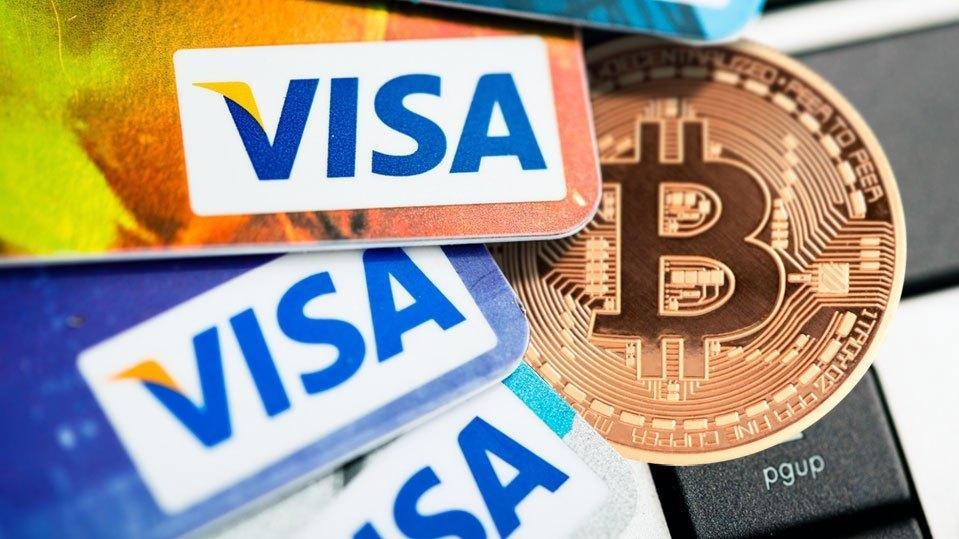
Card payments company – Visa has submitted a patent application to create a “digital fiat currency” on a centralized computer using blockchain technology.
According to the filing published on May 14 by the United States Patent and Trademark Office (USPTO), the inventors seek to patent a blockchain digital currency such as digital dollars and other central bank digital currencies (pounds, yen, and euros); such that the physical currency of a central bank anywhere in the world could be digitized.
The inventors Simon J. Hurry and Alexander Pierre in partnership with the Visa International Service Association, pitch the system as a bridge which offers the advantages of cryptocurrencies with those provided by traditional or government-issued currency. They explain:
Cryptocurrency systems have advantages over fiat currency systems. For example, cryptocurrency money transfers can also be faster than conventional fiat currency money transfers. Lastly, because some cryptocurrencies use blockchains, such cryptocurrencies are often trusted since blockchains are immutable records of transactions. While cryptocurrencies have advantages, they are generally not subject to regulation like fiat currencies. Further, it is not practical for governments to wholly convert their fiat currency systems entirely to cryptocurrencies, since cryptocurrencies require the use of electronic devices. Some segment of the population of a country may not have electronic devices so a complete conversion of fiat currencies to cryptocurrencies is not practical.”
The invention seeks to address problems and practicality of both forms of currency and will likely run on the Ethereum blockchain or the Hyperledger Fabric blockchain.
With regards to its centralization process aimed at maintaining the value of the stablecoin, the application notes that the digital fiat currency would have a “central entity ” to maintain control over the monetary system – that is a government issuer of currency or central bank.
“A ‘central entity’ may refer to an entity that regulates something. A central entity may be a central bank, which regulates a monetary supply. A central entity may implement a monetary policy and issue currency. A central entity may maintain exclusive rights to create or destroy currency in a region such as a nation. A central entity may be associated with a government of such a region,” the filing explains.
Visa has continued to keep tabs on the crypto and blockchain industry, including establishing partnerships with digital currency exchanges.
Visa was also a partner on the Facebook Libra Coin project before its withdrawal from the association in October, alongside other companies.
Notably, during yesterday’s JP Morgan Virtual Conference, CEO of Visa Alfred Kelly described digital currencies backed by fiat currency as a potential emerging payments technology.
“[Digital currency backed by fiat] I think, are real – a potential emerging payments technology that could be very interesting. And as it relates to those, we support the case for digital currencies. We actually think that digital currencies could be additive to the payments ecosystem as opposed to being any kind of replacement or negative,” said Kelly.